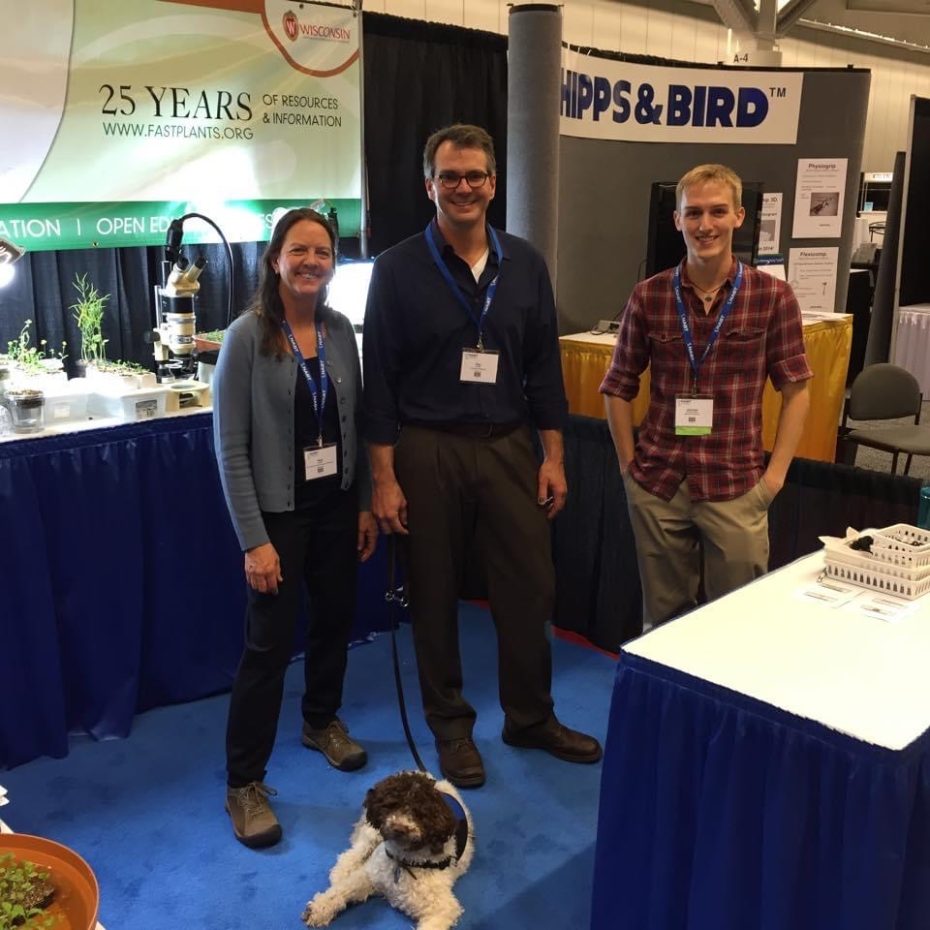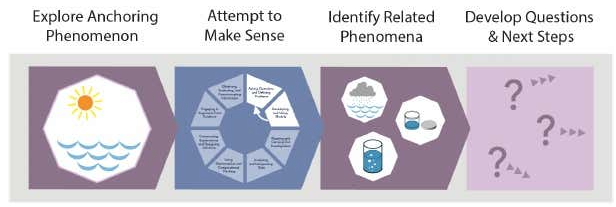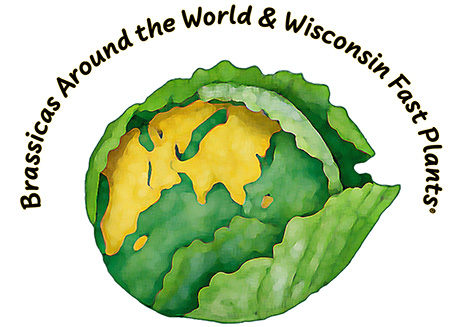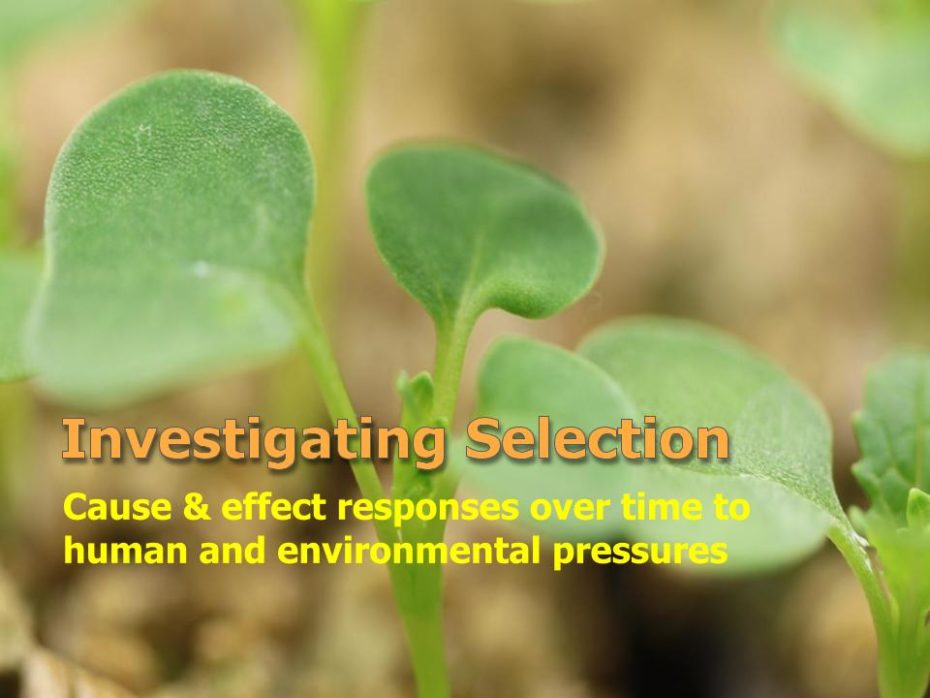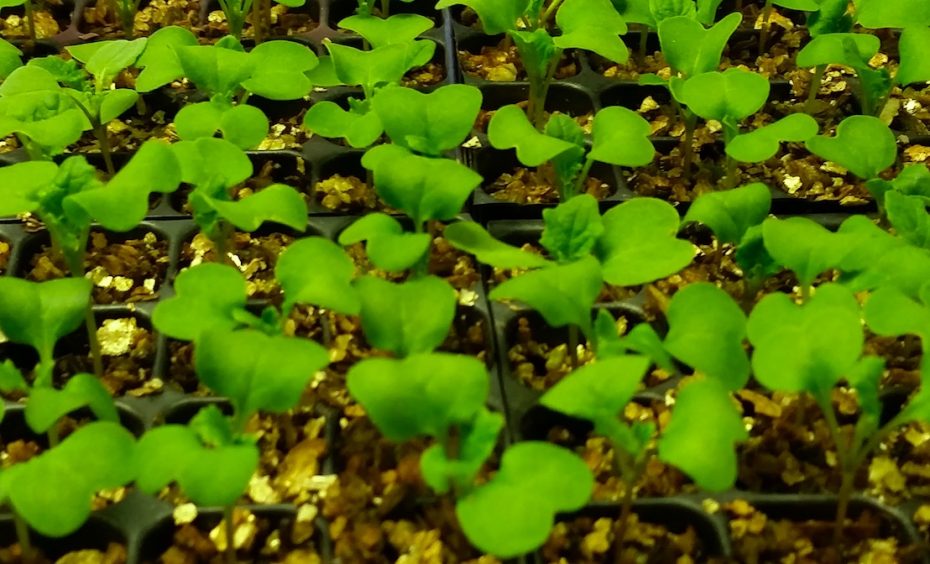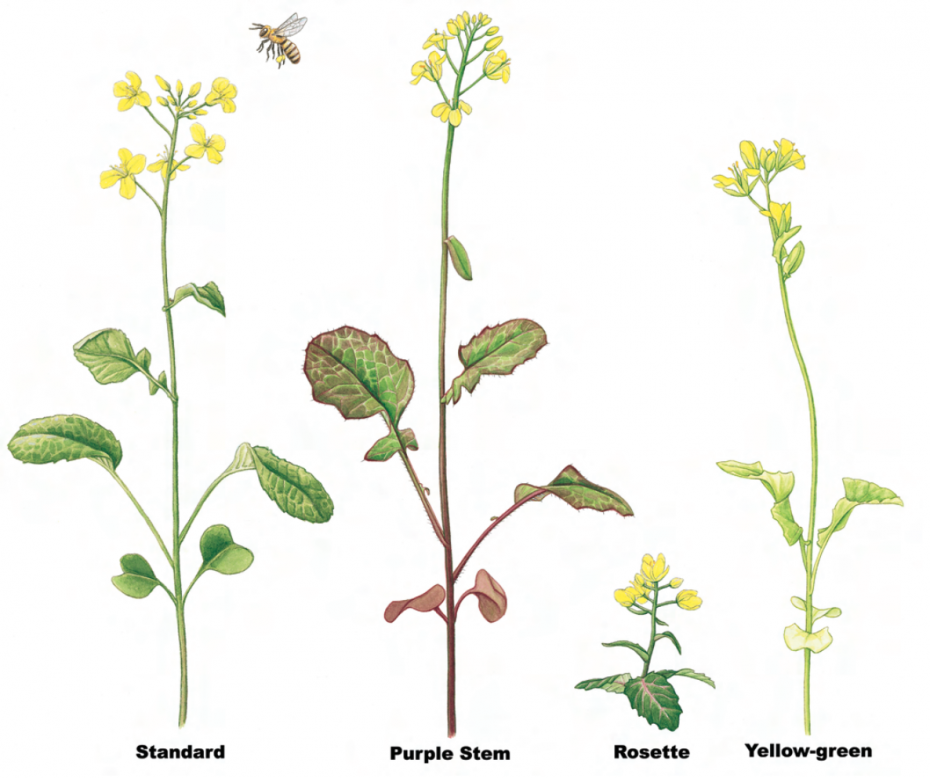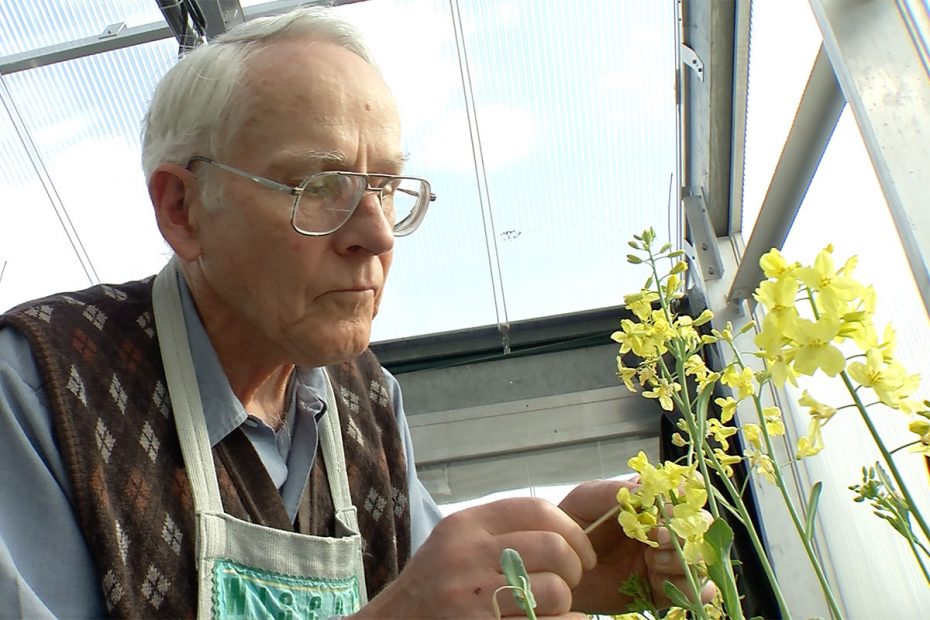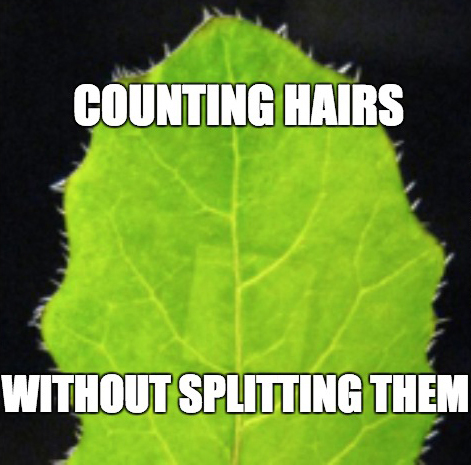It’s the season of professional development conferences for teachers, educators, and our Fast Plants Team! Come visit our booths in the exhibit halls, they’re always packed with living Fast Plants, recommended resources, and good conversation. Jackson is attending NABT in Baltimore; Hedi and Dan are attending CAST in Houston and ACTE in Phoenix! This blog post summarizes what you’ll find …
Dihybrid Inheritance Study Using Wisconsin Fast Plants – Open Source Educator Resources
Blog Post Sections Announcing Dihybrid Inheritance Study Teaching Tool Study and Resource Overview Dihybrid Inheritance versus Monohybrid Inheritance Patterns: Which to Choose? Identifying Traits Rosette-Dwarf and Anthocyaninless (Non-Purple) Study Timeline Learn More and Access Resources Announcing Dihybrid Inheritance Study Teaching Tool The Wisconsin Fast Plants team is proud to announce the release of a set of resources to support teaching …
Investigating Brassicas Around the World with Fast Plants – Open Source Lesson
Blog Post Sections Announcing Brassicas Around the World Lesson Hands-On Fast Plants Experiment Models Brassica Selection Around the World This Investigation is Ideal for… Connecting Science and Culture Relevance of Fast Plants and Brassicas Around the World Announcing Brassicas Around the World Lesson The Wisconsin Fast Plants team is proud to announce a revision and content overhaul to one of …
New! Polycots Fast Plants Seed Line: Engaging & versatile for selection experiments
Polycot seedlings are easy to distinguish just a few days after germination! Our new Polycots seed line of Fast Plants features a trait that students can easily see at the seedling stage. In addition, we’ve developed a procedure for producing parental (Generation 1) and offspring (Generation 2) Polycot seed stocks, so it is not necessary for students to produce their own …
Inheritance and Genetics: Observing Variation and Measuring Selection in Fast Plants
Variation is a fundamental attribute of life; understanding its nature is important to all. Wisconsin Fast Plants are an ideal model for teaching this concept, with easily observable variation in many plant traits. This variation can be observed, described, and measured or quantified to gain greater understanding of plant traits. Development of selection experiments allows analysis of recorded data and measuring …
Inheritance and Genetics: Understanding Patterns of Inheritance in Fast Plants
Wisconsin Fast Plants are an ideal model organism for observing and learning about inheritance patterns! Monohybrid and Dihybrid crosses demonstrate Mendelian patterns while other genetic stocks provide opportunity for observing cytoplasmic traits and developing of selection experiments. What inheritance patterns are observable in Fast Plants? Mendelian traits: monohybrid cross this investigation focuses on the genetics of the plant stem color trait Mendelian traits: dihybrid …
Teaching Hands-On Life Science Using Wisconsin Fast Plants
Wisconsin Fast Plants are perfect for teaching life science in the classroom! Initially developed as a research tool at the University of Wisconsin – Madison, Fast Plants have 30+ years of use as a model organism in K-12 education. This post is an introduction to teaching with Fast Plants, with links for easy access to materials that support developing and implementing hands-on life science …
Are Wisconsin Fast Plants Genetically Engineered Plants?
Simply stated, Wisconsin Fast Plants are not genetically engineered plants. Rather, Fast Plants are the result of over 30 years of conventional plant breeding that continues, today. This plant breeding began in about 1974, using the same ways of doing things that people have used for at least 10,000 years to tame/control and improve crops for human use. In other words, those Brassicas …
Counting Leaf Hairs on Fast Plants for Selection Experiments
Hairs are not often a trait that we associate with plants. However, of all the traits that students might observe in a population of Fast Plants, we can learn a lot about variation and natural selection by counting and selecting for the number of hairs on a leaf margin. Selective breeding to increase (or decrease) hairiness can provide an excellent opportunity …

